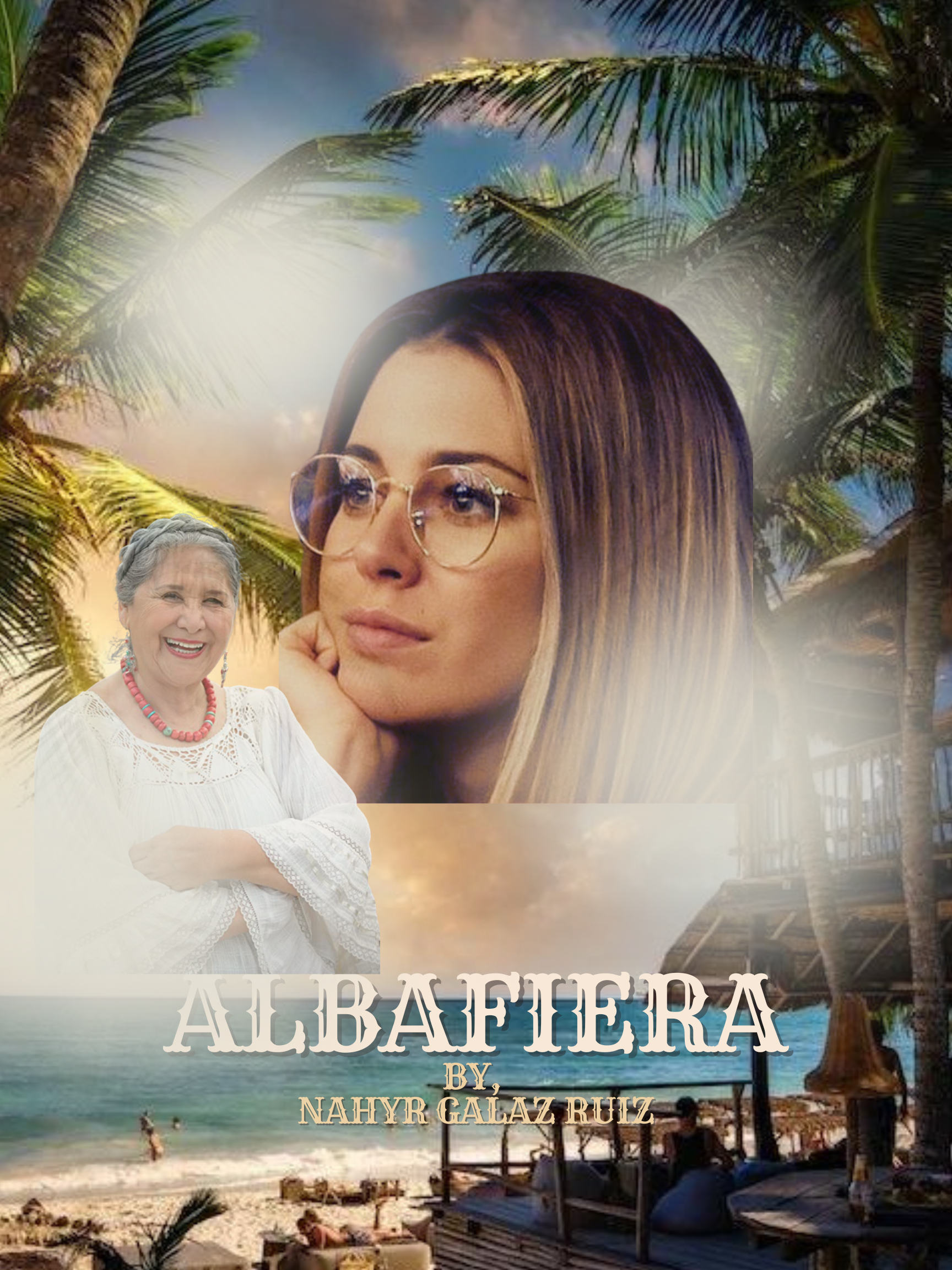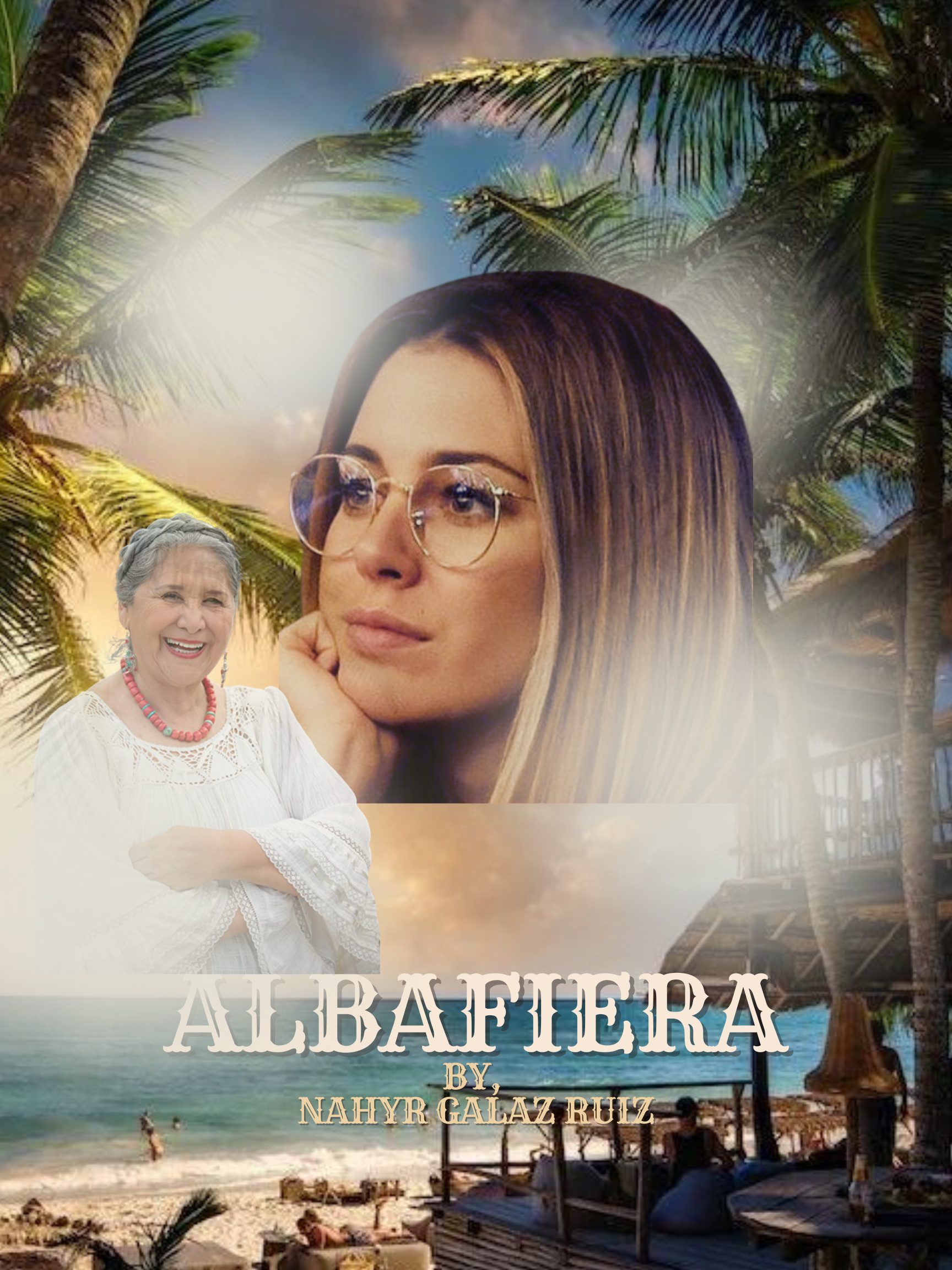Nahyr Galaz Ruiz
Born in Querétaro, Mexico, I was brought to the United States when I was five years old and was raised in San Diego. Upon arriving, I soon discovered that leaving a piece of me in my birth country but adapting to an American lifestyle and speaking both languages fluently, afforded me a unique duality that bridged the cultural gap for me that many experienced. That same duality manifested in the content I consumed growing up in the 90's. Since I can remember, I have sought stories to help me relate to my world and my circumstances, be it via television, movies, or dance. As a young child, I would rewrite the fairytales I would see in movies, such as The Little Mermaid, to reflect more the world as I saw it. In my teens, I wrote my version of James Bond to reflect my desire to play a cool spy while unconsciously protesting in frustration that only men got to be that character. My love for dance allowed me to experiment with storytelling in a more abstract form and eventually that led me to found a dance company for which I was both choreographer as well as artistic director. Recently, I earned my M.F.A. in Screenwriting & Directing from Mount Saint Mary's University, Los Angeles. Ultimately I seek to use all art forms in collaboration to raise our voices and representation on screen as well as behind the camera and in decision-making rooms. I very much believe that art is the vehicle by which we convey truth, and I strive to write and create from a place of truth.
What topic do you discuss in your script? And why?
I discuss themes of generational trauma, of the complexity of family relationships (particularly in Latine families), of the female experience, of the power of love, and the journey to break the cycle of trauma.
How do people feel after reading your script?
The few readers that have read this script thus far, as it is a new script, have told me that the story leaves them feeling seen and many of the characters feel authentic to their experiences.
Do you think that films can change people for the better or for the worse?
I vehemently believe that films have the power to change people and subsequently our world for the better. Films are a universal language and through film, we are able to convey messages and bring to light social awareness where otherwise people may not be receptive. This is why representation is so powerful and crucial. The more we see marginalized groups represented on the screen with authenticity, (because authenticity is key), the more empowered those communities become and the more mainstream communities learn to let go of their prejudices. On the flip side, like any other platform or tool, a film can be used for the worse. There are several examples in history where media; film, television, print, etc have been used as propaganda to further marginalize or demonize specific groups of people. I feel that it is our responsibility as storytellers to seek to use our craft for the betterment of our world.
According to 3-act dramaturgy, how would you define your story?
AlbaFiera begins when our main character, Dani Albavera Voss, is at the height of her career and in a Harlequin romance type of marriage to a handsome, caring, and successful attorney. She's got it all. But when a woman she's never met approaches her and claims to be her husband's lover, it's as if someone pulled out a crucial block in her Jenga tower and her world begins to fall apart. Dani runs to her mother, who was always waiting for this to happen because it's the Albavera "curse." All the women in their family have been ruined at the hands of men. Dani is visited from beyond the grave by her great-grandmother who sets her on a quest to learn the truth about this curse and her family history which begins in Acapulco, Mexico. Dani soon begins to learn that there is a lot about herself and her family that was kept from her and that not all is as it appears and that to break the curse of generational trauma she has to go deeper into each Albavera matriarch's story.

How does the main character develop?
Dani goes from believing everything she's told, lying to herself, and running; to embracing the unknown and diving in while changing her perspective as she uncovers more of each story. She also goes from thinking she trusted (while having one foot out the door), to learning what it means to truly trust.
What actors do you imagine in your project (topologically)?
Having a strong Latine cast is extremely important to this project as it is rooted in authentic Mexican culture while simultaneously highlighting Dani's bi-cultural experience. I envision someone like Zoe Saldaña who has the emotional range the character demands but can also lean into a subtle and casual portrayal of the Latine experience with authenticity and without feeling forced. Simply the way us bi-literate and bi-cultural individuals live our lives; in two worlds at once. For Abuelita Came I envision someone like Carmen Salinas, who has unfortunately passed away. But she had that grandmotherly warm, jovial, sweet, and wise energy that Abuelita Came needs in an actor. Isobel I would want portrayed by someone like Veronica Falcón. Isobel is a complex and often severe character but there is a depth to why she is the way she is that required the gravitas that Falcón brings to the screen. Vane I see as a Gina Rodriguez type; she's your hype girl but also grounded and not afraid to hurl truths, she has a bit of an edge to her but an enormous heart. Tom I would love to see played by a Matthew Goode type, someone who has emotional range and versatility. An actor who can play duplicitous as well as charming and show vulnerability and emotional depth. I could go on but it's a large cast, so I'll spare you!
Why do you think your script should attract a director?
I'm really looking more for development funds or a partnership for this script. AlbaFiera is pretty close to me and written loosely based on my experiences, and I am the best voice to realize the story from page to screen. Even the name is particular to my background- you learn why in the script!
At which festivals did you receive the award?
This script has not earned any awards, YET.
Which screenwriters are your favorite and why?
I closely follow Gloria Calderon-Kellet's career and writing because she's doing what I'm coming up behind her attempting to accomplish: storytelling with Latine culture at the forefront and achieving representation of voices and talent that is diverse. And she does so without compromising her characters or storylines; it's always authentic. I also love Shonda Rhimes because she has been long paving the road for diversity and representation while also telling compelling stories full of heart. Last, but not least in any way, I'm currently obsessed with Taylor Sheridan's work; his elegant writing style and ability to crank out various worlds and stories at once is something to which I aspire.
About which topics are your screenplays?
I tend to write stories of family dynamics, impossible love, love that conquers the impossible, and the journey of the self.
What motivates you the most to write screenplays?
I love telling stories, I love writing characters that people can fall in love with and/or connect to, and the idea that someone who feels unseen or marginalized might see themselves in my characters and find themselves represented.
What are your plans for future careers?
As long as I get to continue telling stories, I'm happy. I don't have to be all my multi-hyphenates at once! In addition to writing, I am also a director, actor, and producer. In my previous life, I was a dancer and choreographer, and sometimes I still choreograph when asked. Overall I just love filmmaking and telling authentic stories.
What topic do you discuss in your script? And why?
I discuss themes of generational trauma, of the complexity of family relationships (particularly in Latine families), of the female experience, of the power of love, and the journey to break the cycle of trauma.
How do people feel after reading your script?
The few readers that have read this script thus far, as it is a new script, have told me that the story leaves them feeling seen and many of the characters feel authentic to their experiences.
Do you think that films can change people for the better or for the worse?
I vehemently believe that films have the power to change people and subsequently our world for the better. Films are a universal language and through film, we are able to convey messages and bring to light social awareness where otherwise people may not be receptive. This is why representation is so powerful and crucial. The more we see marginalized groups represented on the screen with authenticity, (because authenticity is key), the more empowered those communities become and the more mainstream communities learn to let go of their prejudices. On the flip side, like any other platform or tool, a film can be used for the worse. There are several examples in history where media; film, television, print, etc have been used as propaganda to further marginalize or demonize specific groups of people. I feel that it is our responsibility as storytellers to seek to use our craft for the betterment of our world.
According to 3-act dramaturgy, how would you define your story?
AlbaFiera begins when our main character, Dani Albavera Voss, is at the height of her career and in a Harlequin romance type of marriage to a handsome, caring, and successful attorney. She's got it all. But when a woman she's never met approaches her and claims to be her husband's lover, it's as if someone pulled out a crucial block in her Jenga tower and her world begins to fall apart. Dani runs to her mother, who was always waiting for this to happen because it's the Albavera "curse." All the women in their family have been ruined at the hands of men. Dani is visited from beyond the grave by her great-grandmother who sets her on a quest to learn the truth about this curse and her family history which begins in Acapulco, Mexico. Dani soon begins to learn that there is a lot about herself and her family that was kept from her and that not all is as it appears and that to break the curse of generational trauma she has to go deeper into each Albavera matriarch's story.

How does the main character develop?
Dani goes from believing everything she's told, lying to herself, and running; to embracing the unknown and diving in while changing her perspective as she uncovers more of each story. She also goes from thinking she trusted (while having one foot out the door), to learning what it means to truly trust.
What actors do you imagine in your project (topologically)?
Having a strong Latine cast is extremely important to this project as it is rooted in authentic Mexican culture while simultaneously highlighting Dani's bi-cultural experience. I envision someone like Zoe Saldaña who has the emotional range the character demands but can also lean into a subtle and casual portrayal of the Latine experience with authenticity and without feeling forced. Simply the way us bi-literate and bi-cultural individuals live our lives; in two worlds at once. For Abuelita Came I envision someone like Carmen Salinas, who has unfortunately passed away. But she had that grandmotherly warm, jovial, sweet, and wise energy that Abuelita Came needs in an actor. Isobel I would want portrayed by someone like Veronica Falcón. Isobel is a complex and often severe character but there is a depth to why she is the way she is that required the gravitas that Falcón brings to the screen. Vane I see as a Gina Rodriguez type; she's your hype girl but also grounded and not afraid to hurl truths, she has a bit of an edge to her but an enormous heart. Tom I would love to see played by a Matthew Goode type, someone who has emotional range and versatility. An actor who can play duplicitous as well as charming and show vulnerability and emotional depth. I could go on but it's a large cast, so I'll spare you!
Why do you think your script should attract a director?
I'm really looking more for development funds or a partnership for this script. AlbaFiera is pretty close to me and written loosely based on my experiences, and I am the best voice to realize the story from page to screen. Even the name is particular to my background- you learn why in the script!
At which festivals did you receive the award?
This script has not earned any awards, YET.
Which screenwriters are your favorite and why?
I closely follow Gloria Calderon-Kellet's career and writing because she's doing what I'm coming up behind her attempting to accomplish: storytelling with Latine culture at the forefront and achieving representation of voices and talent that is diverse. And she does so without compromising her characters or storylines; it's always authentic. I also love Shonda Rhimes because she has been long paving the road for diversity and representation while also telling compelling stories full of heart. Last, but not least in any way, I'm currently obsessed with Taylor Sheridan's work; his elegant writing style and ability to crank out various worlds and stories at once is something to which I aspire.
About which topics are your screenplays?
I tend to write stories of family dynamics, impossible love, love that conquers the impossible, and the journey of the self.
What motivates you the most to write screenplays?
I love telling stories, I love writing characters that people can fall in love with and/or connect to, and the idea that someone who feels unseen or marginalized might see themselves in my characters and find themselves represented.
What are your plans for future careers?
As long as I get to continue telling stories, I'm happy. I don't have to be all my multi-hyphenates at once! In addition to writing, I am also a director, actor, and producer. In my previous life, I was a dancer and choreographer, and sometimes I still choreograph when asked. Overall I just love filmmaking and telling authentic stories.

